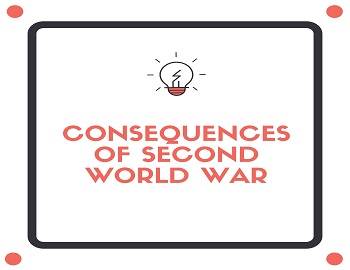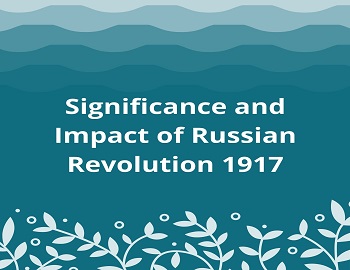New Economic Policy Of Lenin:
Although Lenin had succeeded in repressing his opponents, he was afraid of the deteriorating economic condition of Russia. He was a farsighted politician. He knew very well that the economic policy should be immediately changed in order to pacify the discontent of the masses. Hence, he decided to return to the capitalist system and proclaimed in 1921 a New Economic Policy or the N.E.P. As a matter of fact, this policy was a departure from the Marxian ideal and it was a middle path between socialism and capitalism. It introduced many changes in the field of agriculture, industries, trade, commerce etc. Following were the chief features of this policy-
- To give up the forcible collection of grains from the peasants and in its place, a fixed tax was levied. Initially, this tax was collected in kind but after 1924 it was collected in cash.
- The peasants were free to sell their products in the open market after paying the taxes.
- Restrictions were removed from the internal trade.
- Private enterprise was allowed on a small scale. They were allowed to produce and sell the goods according to their own will.
- Only heavy industries and services attached to the public utilities were nationalised.
- In order to fulfil the requirements of deficient capital, the foreign investors were allowed to invest and receive the dividends on it. The foreign investments were encouraged especially in the agricultural and engineering-related projects. However, the buying right of such products was under the state’s control.
- The individual petty private traders were allowed under some restriction. However, the state established stores for retail trade so as to make it competitive. In addition, the state also encouraged the establishment of cooperative organisations for consumer goods.
- The provision of compulsory labour was also removed.
Thus the aim of new economic policy was to strengthen the economic condition of workers and peasants, to encourage all the workers in rural and urban areas to improve the economy of the country and to allow partial capitalism while keeping the main sources of economy in the hand of the government.
It is difficult to say when the new economic policy which Lenin had called a mixture of a transitional arrangement and national capitalism began to decline. This policy reached its climax in 1925 and the Bolshevik Party formally discarded it in 1929. On the whole, the new economic policy greatly helped in the early recovery of the economy which had been badly shattered during World War I, the Revolution and the Civil War.









Comments (No)